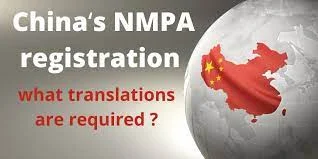The National Medical Products Administration (NMPA) in China plays a crucial role in ensuring the safety, efficacy, and quality of pharmaceutical products available in the market. NMPA drug registration is a comprehensive process that pharmaceutical companies must undergo to gain approval for their products. In this article, we will delve into the details of the NMPA drug registration process, highlighting its significance and the steps involved.
I. Understanding NMPA Drug Registration
The NMPA drug registration process is designed to evaluate the safety, efficacy, and quality of pharmaceutical products before they can be marketed and sold in China. This process is essential to protect public health and ensure that only safe and effective drugs are available to patients. The NMPA follows a regulatory framework and guidelines that outline the requirements for drug registration.
A. Importance of NMPA Drug Registration:
NMPA drug registration is crucial for pharmaceutical companies as it allows them to legally market and sell their products in China. It provides assurance to healthcare professionals and patients that the drugs have undergone rigorous evaluation and meet the necessary standards for safety, efficacy, and quality. Additionally, NMPA registration opens up opportunities for companies to tap into the vast Chinese pharmaceutical market.
B. Regulatory Framework and Guidelines:
The NMPA follows a set of regulations and guidelines that outline the requirements for drug registration. These include the Drug Registration Regulation, Good Clinical Practice (GCP) guidelines, Good Manufacturing Practice (GMP) guidelines, and various technical guidelines specific to different types of drugs. It is essential for pharmaceutical companies to familiarize themselves with these regulations and guidelines to ensure compliance throughout the registration process.

II. Preparing for NMPA Drug Registration
Before initiating the NMPA drug registration process, pharmaceutical companies need to undertake several preparatory steps to gather the necessary data and evidence to support their application.
A. Preclinical Studies and Data Collection:
Preclinical studies involve laboratory experiments and animal testing to assess the safety and efficacy of the drug candidate. These studies generate valuable data that form the basis for further clinical trials. Pharmaceutical companies must conduct preclinical studies in accordance with NMPA guidelines and provide comprehensive data on the drug's pharmacology, toxicology, and potential side effects.
B. Clinical Trials and Data Analysis:
Clinical trials are conducted to evaluate the safety and efficacy of the drug in humans. These trials are typically conducted in three phases, with each phase involving a larger number of participants. The data collected from these trials are analyzed to determine the drug's effectiveness, dosage, and potential adverse reactions. It is crucial to ensure that clinical trials are conducted in compliance with NMPA's GCP guidelines.
C. Quality Control and Manufacturing Standards:
Pharmaceutical companies must establish robust quality control systems and adhere to GMP guidelines during the manufacturing process. This includes maintaining proper documentation, implementing quality assurance measures, and ensuring consistency in drug production. The NMPA requires companies to provide detailed information on their manufacturing facilities, processes, and quality control procedures as part of the registration process.
III. Submission and Review Process
Once the necessary data and evidence have been gathered, pharmaceutical companies can proceed with the submission of their registration dossier to the NMPA.
A. Compilation of Registration Dossier:
The registration dossier is a comprehensive document that includes all the relevant data and information about the drug. It should contain detailed data from preclinical and clinical studies, information on the drug's formulation and manufacturing process, stability data, and proposed labeling and packaging materials. The dossier should be compiled in accordance with NMPA's guidelines and requirements.
B. Submission to NMPA:
The registration dossier is submitted to the NMPA along with the required application forms and fees. The NMPA conducts an initial review to ensure that all the necessary documents are included and that the application meets the basic requirements. If any deficiencies are identified, the applicant is notified and given an opportunity to address them.
C. Technical Review and Evaluation:
Once the initial review is complete, the NMPA conducts a detailed technical review of the registration dossier. This involves evaluating the data, conducting site inspections, and assessing the drug's safety, efficacy, and quality. The review process may involve multiple rounds of questions and clarifications between the NMPA and the applicant. The NMPA aims to complete the review process within a specified timeframe, although the duration may vary depending on the complexity of the application.

IV. Post-Approval Requirements
After obtaining NMPA approval, pharmaceutical companies must fulfill certain post-approval requirements to ensure ongoing compliance and monitoring of the drug.
A. Post-Marketing Surveillance:
Pharmaceutical companies are required to conduct post-marketing surveillance to monitor the drug's safety and efficacy in real-world settings. This involves collecting data on adverse drug reactions, conducting post-approval clinical studies, and regularly reporting the findings to the NMPA.
B. Pharmacovigilance and Adverse Event Reporting:
Pharmacovigilance is an essential component of post-approval monitoring. Pharmaceutical companies must establish systems to collect, analyze, and report adverse events associated with their drugs. Timely reporting of adverse events to the NMPA is crucial for ensuring patient safety and maintaining the drug's approval status.
C. Labeling and Packaging Compliance:
Pharmaceutical companies must ensure that their drug labeling and packaging comply with NMPA's requirements. This includes providing accurate and comprehensive information about the drug's indications, dosage, contraindications, and potential side effects. Compliance with labeling and packaging regulations is essential to prevent medication errors and ensure patient safety.
V. Challenges and Considerations
Navigating the NMPA drug registration process can be complex and challenging for pharmaceutical companies, especially those unfamiliar with the Chinese regulatory landscape. Some key challenges and considerations include:
A. Language and Documentation Requirements:
All documentation submitted to the NMPA must be in Chinese. Pharmaceutical companies may need to engage professional translators or regulatory experts to ensure accurate translation and compliance with language requirements.
B. Intellectual Property Protection:
Protecting intellectual property rights can be a concern for pharmaceutical companies during the registration process. It is important to understand the intellectual property laws in China and take appropriate measures to safeguard proprietary information.
C. Local Representation and Regulatory Affairs Support:
Engaging local representation and seeking regulatory affairs support from experienced professionals can greatly facilitate the NMPA drug registration process. Local experts can provide guidance on navigating the regulatory requirements, assist with document preparation, and liaise with the NMPA on behalf of the applicant.

VI. Conclusion
Successfully navigating the NMPA drug registration process is essential for pharmaceutical companies looking to bring their products to the Chinese market. By adhering to the regulatory requirements, conducting thorough preclinical and clinical studies, and ensuring compliance with quality control standards, companies can increase their chances of obtaining NMPA approval. It is crucial to stay updated with the evolving guidelines and seek professional assistance to overcome challenges and ensure a smooth registration process.
Kingsmead was founded in 2012 and provides authorized representatives and consulting services for medical devices. Kingsmead team is composed of multiple medical device experts, proficient in the requirements of medical device regulations and medical device regulations.
If you need help with the NMPA Drug Registration service for your medical device,welcome to contact Kingsmead.We will provide you with professional help to ensure you receive specific guidance suitable for your device and circumstances.


